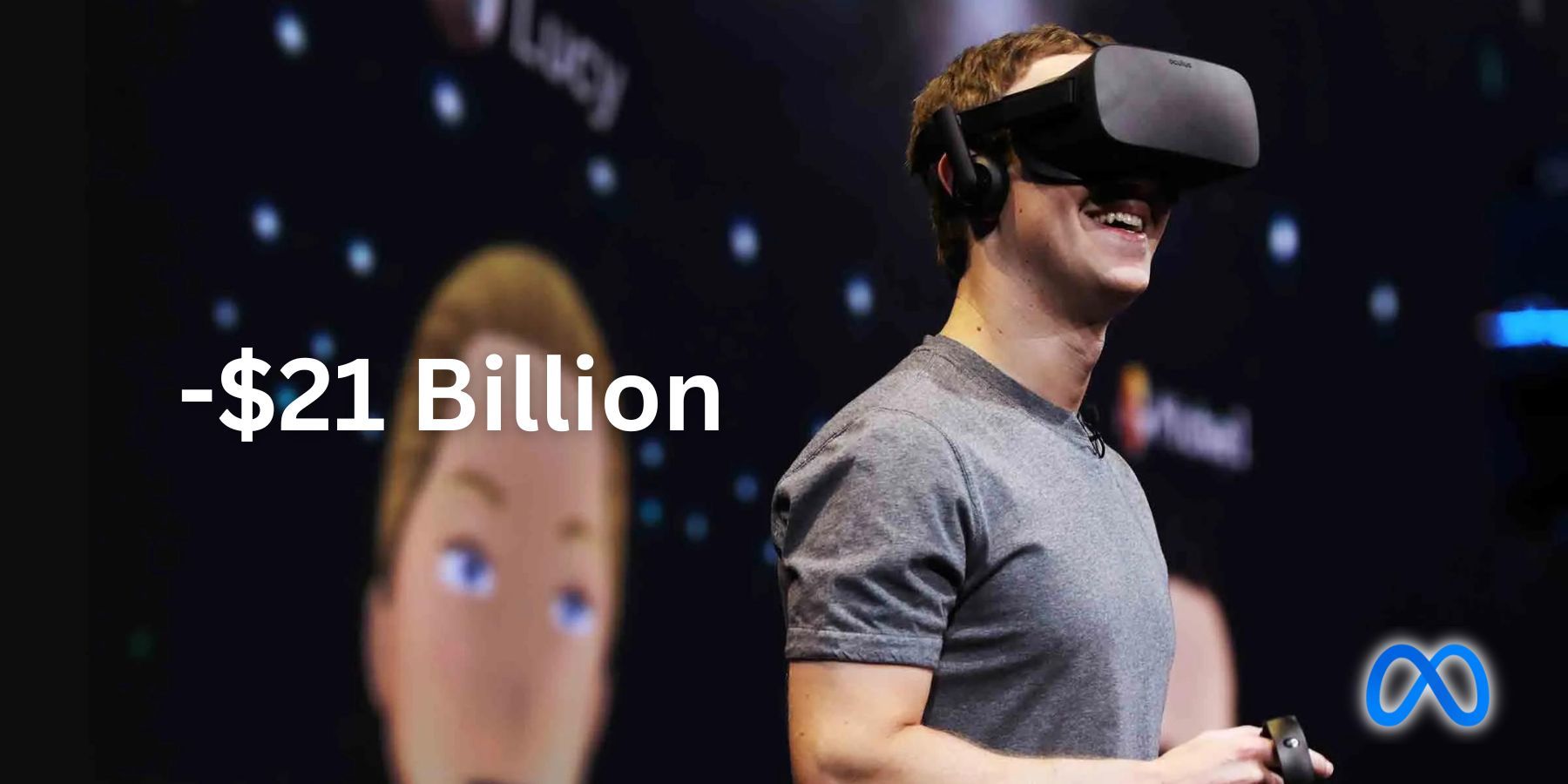Highlights
- Meta's Reality Labs department has lost $21 billion in the last 18 months and $34 billion since its launch, raising concerns about the success of its Metaverse ventures.
- The concept of the Metaverse has faced a ton of criticism since its inception. Many users see no point in the concept and view it more as a game than a transformative digital universe.
- The high entry costs, including expensive VR headsets, have limited the accessibility of the Metaverse to those who can afford it, contributing to its lack of widespread adoption.
- The future success of the Metaverse remains uncertain.
It was recently reported that Meta's Reality Labs department, which spearheads its Metaverse ventures, has lost a total of $21 billion in the last eighteen months and a total of $34 billion since its launch in August 2021.
Reality Labs at Meta is tasked with dealing in augmented reality, virtual reality, and related software, though it hasn't been met with much success it seems. Meta's CEO Mark Zuckerberg is continuing to defend and fund his company's approach to virtual reality, in spite of competition such as Apple's Vision Pro entering the spotlight. With new numbers released pertaining to how much money Meta is still losing, it's important to look at the possible reasoning behind it. It's worth noting, however, that this is speculation based on a general reception of the Metaverse, and there may be many other untold factors at play.
The General Idea of a Metaverse Has Not Been Well-Met
Unfortunately for Zuckerberg, who genuinely seems to believe that Metaverse is going to be the future, the virtual idea has never really taken off. One could argue the idea is aimed at adults who could use it as a means of living virtually, working within the Metaverse, and of course occasionally playing games. But just as any video game is criticized for its appearance, so too has the Metaverse attempt. Its simplistic graphics were called out for being "ugly," and while perhaps the more bigger goal of a Metaverse isn't about graphics, it made the idea seem more of a game than anything.
On top of this, many would-be users see no point in the concept of the Metaverse. It was simply called "the next chapter of the internet," which isn't something that's really quantifiable. One could argue the same was true before the internet existed, its uses were apparent. That's the key difference with the Metaverse. While having an entire digital universe to work in and carry out one's life was an interesting idea, the idea ultimately failed to appeal to the masses. After all, many of the features in the Metaverse, like chat rooms and games, can already be found in different mediums. Based on what the Metaverse was initially marketed for, it doesn't seem many adults are using it and turning it into a flourishing working world, and modern numbers for usage are largely composed of children playing games - and not exactly "in" the Metaverse.
Furthermore, not only do people need an expensive VR headset to participate, but there are other fees that soon follow. For example, the latest Meta Quest Pro will set a person back $1,500. There are cheaper ways to get involved with the Metaverse, but it's undeniable that the entry cost is not feasible for those who can live life without the metaverse. Ultimately, it may come down to a combination of high entry costs, general confusion, lack of application, and general distaste of the concept.
Of course, Zuckerberg has stated he expects Metaverse will continue to lose money for the foreseeable future. He thinks it will succeed by 2030, saying "I'm still completely optimistic about all the things that we've been optimistic about." It seems the Metaverse is still collaborating with other businesses, though whether Metaverse can save itself in the next few years is still to be determined.





